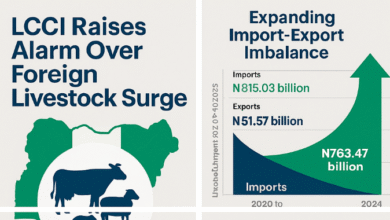Rescue real sector, economy through development finance – CPPE urges CBN
 The Centre for the Promotion of Private Enterprise (CPPE) has advised the CBN to accelerate increased capitalisation of development finance institutions, to create concessionary financing window for the real sector and small businesses.
The Centre for the Promotion of Private Enterprise (CPPE) has advised the CBN to accelerate increased capitalisation of development finance institutions, to create concessionary financing window for the real sector and small businesses.
Its Founder, Dr Muda Yusuf, gave the advice in a statement, while reacting to resolutions from a two-day MPC meeting on Tuesday in Abuja.
Yusuf said the outcome of the Monetary Policy Committee (MPC) meeting would hurt the real sector, already contending with numerous macroeconomic challenges.
Obi charges FG to tackle corruption to move economy forward
He said increase of Monetary Policy Rate (MPR) from 18.75 per cent to 22.75 per cent; and cash Reserve Ratio (CRR) from 32.5 to 45 per cent also posed major risk to banks
“The increase would constrain the capacity of banks to support economic growth and investment, especially in the real sector of the economy because the increases are quite significant,” he said.
He said the apex bank’s decisions did not capture the peculiarities of the Nigerian inflation, largely driven by supply-side variables, and the CBN ways and means financing.
He said persistent monetary policy tightening for over two years had failed to make any significant impact on the inflationary pressures.
He listed factors that had worked against the CBN’s efforts for price stability to include surge in commodity prices, disruptive effects of insecurity on agricultural output, and global supply chain disruptions.
“The surge in ways and means finance also makes the CBN a culprit in the inflation predicament over the past few years. The hike in MPR or CRR would not change these variables.
“Already, bank lending has been constrained by the high CRR which was until the latest review, 32.5 per cent. Many operators in the sector claim that effective CRR is as high as 50 per cent for many banks, the discretionary debits by the apex bank.
“The credit situation in the economy is already very tight, with lending rate ranging between 25 per cent to 30 per cent.
“The Nigerian banks are yet to live up to their financial intermediation role because of these constraining factors,” Muda said.
He said the nation’s economy was not credit driven like those of advanced economies with higher levels of financial inclusion, robust consumer credit framework and strong correlation between interest rate and aggregate demand.
“The level of financial inclusion in the Nigerian economy is still quite low, access to credit by households and MSMEs is still very challenging, and the informal sector accounts for close to 50 per cent of the economy.
“Private sector bank credit as a percentage of GDP was 14 per cent in 2022 in Nigeria. It was 59 per cent in South Africa, 30.9 per cent in Egypt, 30 per cent in Botswana, 51.6 per cent in the United States and 130 per cent in the United Kingdom,” he added.
He said the nation’s policy responses had to be different, adding that, in the Nigerian context, price levels were not interest sensitive as supply side were drivers of inflation.
“The new dramatic increase in MPR to 22.5 per cent hike means that the cost of credit to the few private sector that have exposure to bank credits will increase which will impact their operating costs, prices of their products and profit margins, amidst vey challenging operating conditions.
“The equities market may also be adversely impacted by the hike.
“It is thus imperative for the CBN to accelerate the process of increased capitalization of the development finance institutions to create a concessionary financing window for the real sector and the small businesses,” he said.
Yusuf identified key drivers of inflation and made recommendations urging government to reverse the spiraling effects by addressing security concerns causing disruption to agricultural activities.
He also advised government to sustain reforms in the foreign exchange market to stabilize the exchange rate, reduce volatility and stimulate forex inflows.
He further urged government to address forex liquidity issues through appropriate policy measures incentives forex inflows into the economy.
“Fix the structural problems to boost productivity and competitiveness of domestic firms.
“Address the challenge of high transportation and logistics cost.
Reduce fiscal deficit monetization to minimize incidence of high-powered money in the economy,” he said.
The CPPE boss also advised government to manage climate change consequences to reduce flooding and desertification.
He called for the restoration of normalcy and good order at the nations ports to reduce transaction costs.
“Reduce import duty on intermediate products and raw materials for industries to reduce production costs, especially in the light of the sharp depreciation in the exchange rate.
“Address concerns around high energy cost. Create an investment friendly tax environment to boost investments and output in the economy,” he said.











